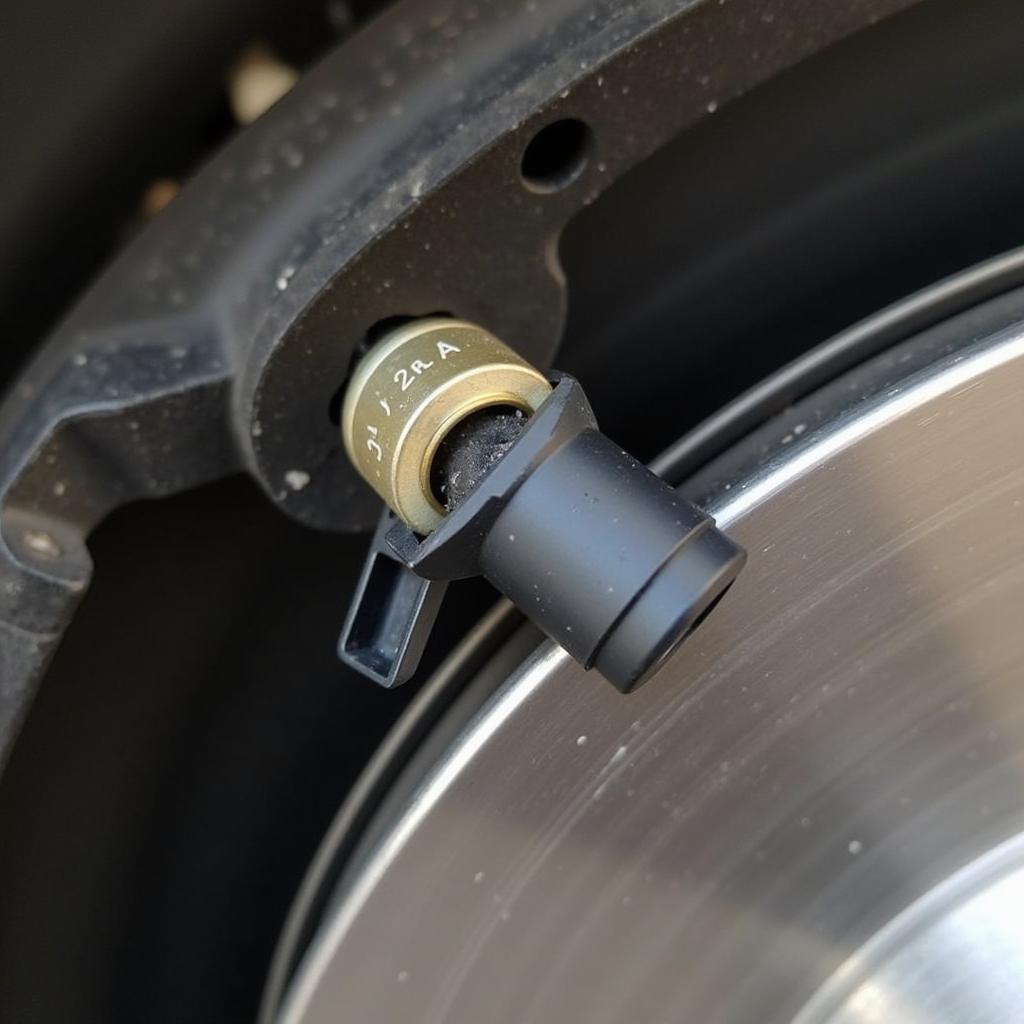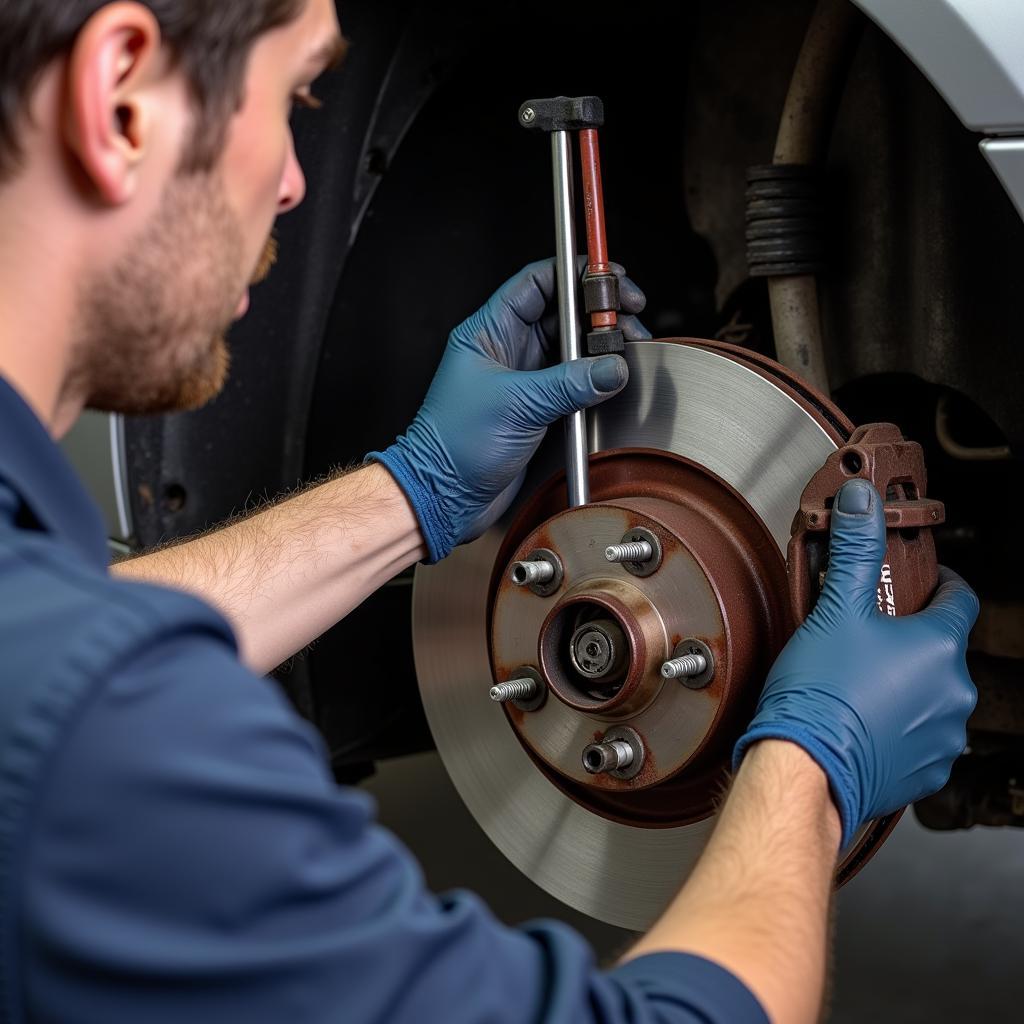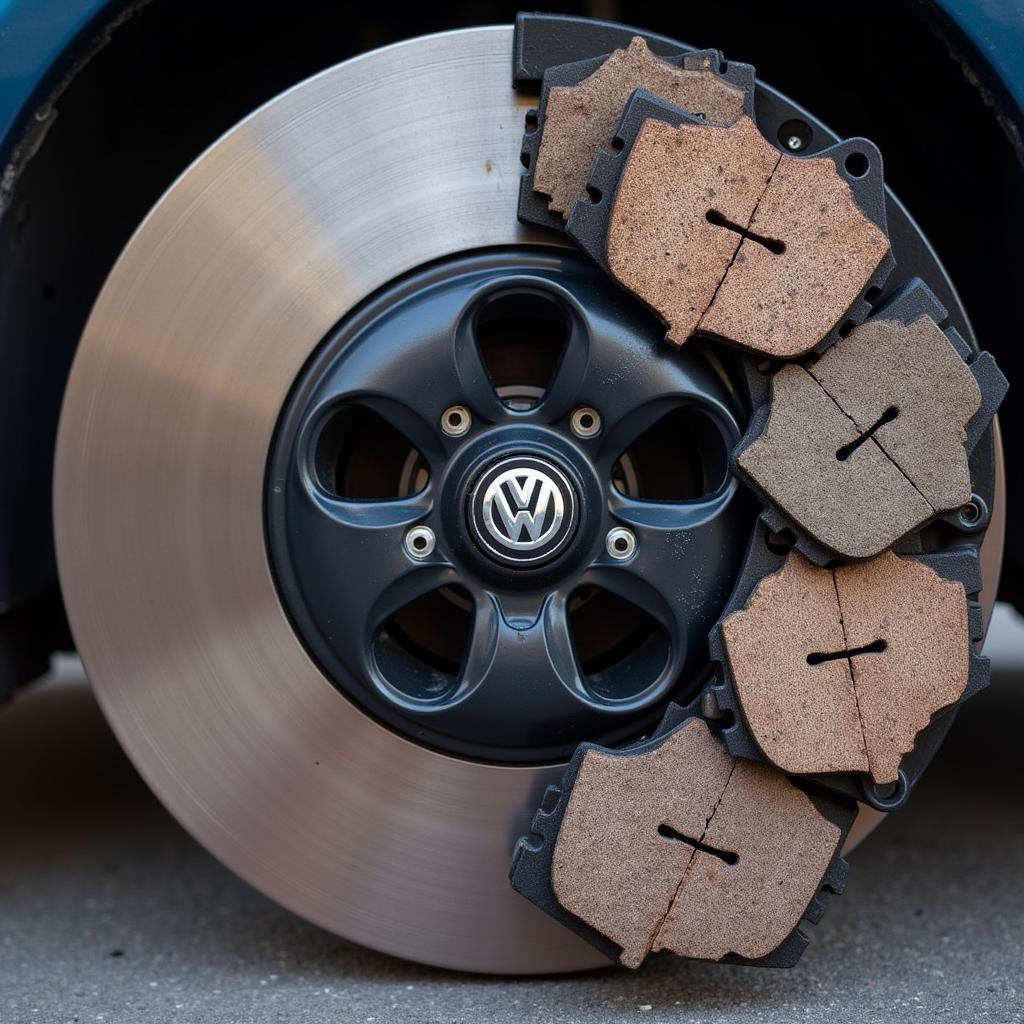The brake pad warning light on your 2004 Volkswagen Passat is a crucial safety feature designed to alert you to potential issues with your braking system. When this light illuminates on your dashboard, it signals that your brake pads have worn down to a point where they require immediate attention. Ignoring this warning could lead to further damage, compromising your safety and requiring more costly repairs down the line.
Understanding Your Volkswagen Passat’s Brake Pad Warning Light
The brake pad warning light typically appears as a circular symbol with parentheses on either side and an exclamation mark in the center. It may also be accompanied by the word “BRAKE” or a similar indicator on your dashboard. In some cases, the warning light may flash intermittently or remain constantly illuminated, depending on the severity of the issue.
Common Causes of a 2004 Volkswagen Passat Brake Pad Warning Light
While worn brake pads are the most common culprit behind the illuminated warning light, several other factors can contribute to this issue. Here are some potential causes:
- Worn Brake Pads: As brake pads wear down over time, the sensor wire embedded within the pad makes contact with the brake rotor, triggering the warning light.
- Faulty Brake Pad Sensor: A malfunctioning or damaged sensor can send a false signal, illuminating the warning light even if your brake pads are in good condition.
- Low Brake Fluid Level: Low brake fluid can also activate the brake pad warning light, often indicating a leak in the braking system.
- W Worn Brake Rotor: While less common, a severely worn brake rotor can interfere with the brake pad sensor’s operation, causing the warning light to turn on.
 Volkswagen Passat Brake Pad Sensor
Volkswagen Passat Brake Pad Sensor
Diagnosing the Problem: What to Do When the Warning Light Comes On
If your 2004 Volkswagen Passat’s brake pad warning light comes on, it’s crucial to address the issue promptly. Here’s a step-by-step guide on how to diagnose the problem:
- Check Your Brake Fluid Level: Locate the brake fluid reservoir under the hood and ensure the fluid level is within the “MIN” and “MAX” markers.
- Inspect Your Brake Pads: If you’re comfortable with basic car maintenance, you can visually inspect your brake pads by removing the wheel and looking through the spokes. Look for significant wear on the pads.
- Consult a Qualified Mechanic: For a comprehensive diagnosis, take your vehicle to a trusted mechanic specializing in Volkswagen vehicles. They have the expertise and equipment to accurately identify the root cause of the problem.
 Mechanic Inspecting Volkswagen Passat Brake System
Mechanic Inspecting Volkswagen Passat Brake System
Volkswagen Passat Brake Pad Replacement: What to Expect
If your brake pads are worn down, it’s essential to have them replaced immediately. Here’s a general overview of the replacement process:
- Selecting the Right Brake Pads: Choosing high-quality brake pads specifically designed for your 2004 Volkswagen Passat is crucial for optimal braking performance and longevity.
- Professional Installation: While some car owners opt for DIY brake pad replacements, it’s highly recommended to have this procedure performed by a qualified mechanic.
- Brake Fluid Flush: During a brake pad replacement, it’s also a good practice to have your brake fluid flushed and replaced to ensure optimal hydraulic pressure and prevent corrosion within the braking system.
 New Brake Pads Installed on Volkswagen Passat
New Brake Pads Installed on Volkswagen Passat
Expert Insights on Volkswagen Passat Brake Pad Maintenance
“Regular brake inspections are crucial for maintaining optimal safety and preventing costly repairs. Don’t wait for the warning light to come on before checking your brakes. Schedule routine maintenance checks, especially if you notice any unusual noises or vibrations while braking.” – John Miller, Senior Automotive Technician at German Auto Experts.
Conclusion: Prioritizing Your Safety and Maintaining Your Volkswagen Passat
Addressing your 2004 Volkswagen Passat’s brake pad warning light promptly is crucial for ensuring your safety and the longevity of your vehicle. By understanding the common causes, taking the necessary steps for diagnosis, and seeking professional assistance, you can avoid potential hazards and keep your Passat running smoothly. Remember, regular brake maintenance is a small investment that goes a long way in protecting you and your passengers on the road.

